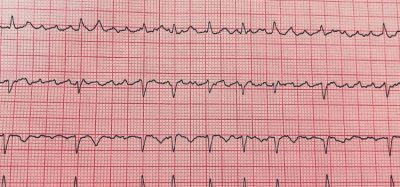Benzodiazepines could increase suicide risk in COPD and PTSD patients
Posted: 12 October 2018 | European Pharmaceutical Review | 2 comments
A study from the VA Puget Sound Healthcare System has found a link between the use of benzodiazepines and suicide in patients with COPD or PTSD…


Researchers have found that long-term use of benzodiazepine medications in patients with posttraumatic stress disorder (PTSD) or chronic obstructive pulmonary disease (COPD) could lead to an increased risk of suicide.
Dr Lucas M. Donovan and his team studied 44,555 veterans who received medical care between 2010-2012. Of these individuals, 23.6 percent received benzodiazepines long term (90 days or longer).
Benzodiazepines are anxiety-reducing, hypnotic, anticonvulsant and sedative drugs that are usually prescribed for COPD and PTSD. Symptoms including shortness of breath, anxiety, insomnia can be alleviated with the drug. The use of benzodiazepines is controversial because of the adverse side effects associated with the drug, which includes an increased risk of COPD exacerbations and self-injury.
“The use of benzodiazepines among patients with high-risk comorbidities is a frequent dilemma for patients and clinicians,” said Dr Donovan, a pulmonary, critical care and sleep physician and health services researcher at the VA Puget Sound Healthcare System. “Understanding the risks of benzodiazepines is difficult because the symptoms that prompt their use, including anxiety and shortness of breath, are themselves linked with poor outcomes.”
The researchers matched patients in their analysis by taking over 44 patient characteristics into account, to try to identify the risks of the drugs. These characteristics included medical and psychiatric history, medication use and health care utilisation.
They found that long-term use of benzodiazepines in COPD patients who also had PTSD more than doubled their risk of suicide. These patients also had higher rates of psychiatric admissions.
However, the researchers did not find that long-term use of benzodiazepines in this patient group increased their risk of death from all causes or respiratory events, as previous studies have suggested.
The researchers did find that short-term use (less than 90 days) of benzodiazepines was associated with increased mortality, which supports previous findings. Dr Donovan said this finding should be interpreted with some caution given the researchers did not use the same matching techniques employed in the primary analyses.
The authors said study limitations include the possibility of not being able to fully determine the severity of lung obstruction or PTSD from medical record data.
“Although long-term benzodiazepine use among patients with COPD and PTSD is not linked with overall mortality, the association with suicide is concerning,” said Dr Donovan, who is also an acting instructor at the University of Washington. “More research will be needed to better understand this link with suicide, but in the meantime we would advise that clinicians reconsider prescribing benzodiazepines to patients who already are at high risk for self-harm.”
The study was published in the journal Annals of the American Thoracic Society.
Related topics
Clinical Development, Drug Development, Research & Development (R&D)










Benzodiazepines have destroyed lives due to long-term use. For years they were prescribed for people knowing that long-term use would follow. Initial alleviation of symptoms but then useless accept for addiction and more problems !!!!
First I would like to thank the EPR for publishing this article and the VA for conducting the research. As a veteran of the Iraq war I have lost several friends to suicide that was a result of their PTSD. While I see benzodiazepines such as Xanax as useful tools for reducing some of the aggravating symptoms of PTSD, they are not a cure all or a long-term solution and their use carries inherent risks.
I’m not an advocate for the elimination of these drugs use, However, I would suggest that their use should be used as a later resort to cognitive behavioral therapy and other measures such as lifestyle changes that can help alleviate the symptoms of PTSD without the risk of side effects. From my own experience with the Veterans Administration spanning more than ten years I have seen attitudes towards the treatment of PTSD shift from a pharmaceutical-first based approach to one that is more balanced. I however, believe that use of pharmaceuticals in cases of PTSD and other disorders should be used only as an intervention when other measures have failed and there is a serious enough concern to the patient to warrant their use. To do otherwise may cause our patient undo harm and violate our ethical principal of non-maleficence.
A failing that has systemically occurred in our VA system is that veterans have not been fully informed of the potential side effects of these drugs before or after they were prescribed, and so they have been denied their ability to be part of an informed decision-making process with their physicians. This has led to veterans who later suffered these side effects to discuss within their own veteran communities about how they weren’t informed, resulting in a severe loss of the critical trust of veterans must be able to place in their physicians. It is my hope that physicians will increasing use studies such as this to help guide their patients come to better informed decisions in the future.
Lastly, I have had many known many veterans with PTSD who have had their physicians become agitated, condescending, or even dismissive of their patients wishes when the patient decides against a course of treatment involving benzodiazepines. We as physicians must also respect our patient’s autonomy if they decide for alternative forms of treatment or therapy. Other types of treatment and lifestyle changes can work, I’m living proof of that. If your patients don’t want drugs, please don’t push them.